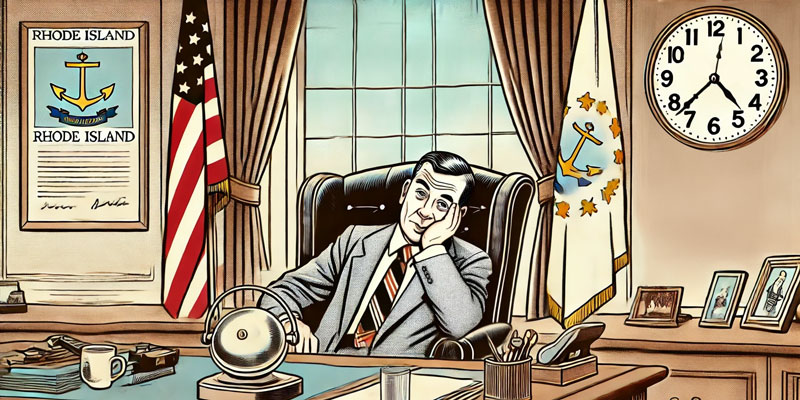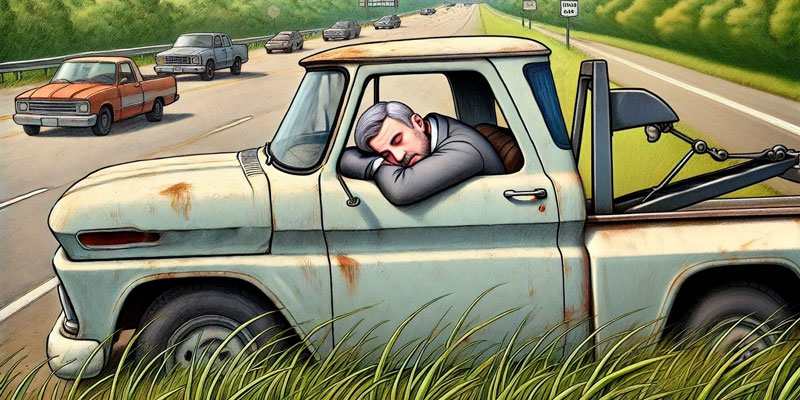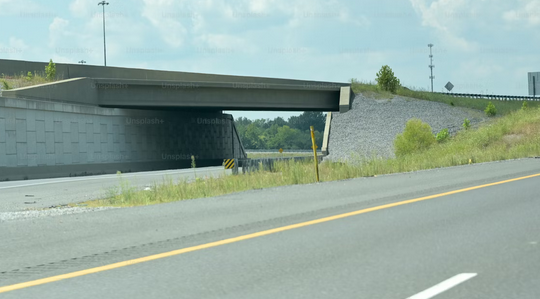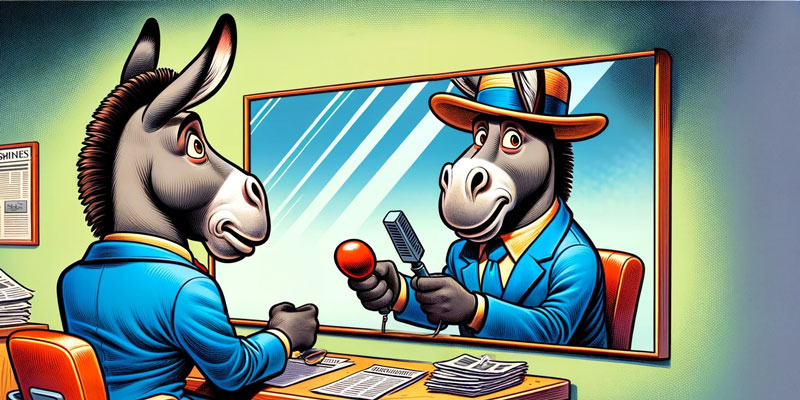I realized this when watching Democrats’ repeated proclamations about jobs numbers during the Obama years only to see those numbers quietly revised the following month, almost always with the revision making touted jobs disappear, rather than quiet corrections representing improvements. Now, it seems crime data has the same partisan infection. All year, we’ve been hearing that violent crime is down under President Joe Biden, but a few weeks ago, the FBI quietly revised its numbers to show a 4.5% increase in 2022, rather than a decrease. Naturally, that makes the 2023 decrease seem even larger, but here’s the key point:
“I have checked the data on total violent crime from 2004 to 2022,” Carl Moody, a professor at the College of William & Mary who specializes in studying crime, told RealClearInvestigations. “There were no revisions from 2004 to 2015, and from 2016 to 2020, there were small changes of less than one percentage point. The huge changes in 2021 and 2022, especially without an explanation, make it difficult to trust the FBI data.”
These numbers are non-transparent estimates, and no explanation for revision is being offered. The most rational conclusion is that bureaucrats are doing their part to “save our democracy” by keeping Democrats in power.
[Open full post]On WNRI 1380 AM/95.1 FM, John DePetro and Justin Katz discuss:
- Where the Washington Bridge buck stops
- Many bucks for the non-profit hospital CEO
- Politicians stump for the TV news union
- Morgan pushes alone in Senate campaign
- Journos back Cotter
- Opportunity and inevitability in Amo’s Congressional district
- Providence schools seek mo’ money, mo’ money
Featured image by Justin Katz using Dall-E 40.
[Open full post]On WNRI 1380 AM/95.1 FM, John DePetro and Justin Katz discuss:
- When 50:50 odds Hasbro stays are the best news politicians can muster
- McKee on vacation
- Another month of RIDOT’s RFP coming “soon”
- The Boston Globe shapes a General Assembly race narrative
- A wholly inadequate exit profile of George Nee
- RI Dem polling and the difficulty of a GOP challenge
Featured image by Justin Katz using Dall-E 40 and Photoshop AI.
[Open full post]The news cycle flows by so quickly, lately, that political actors and activists are learning it’s sometimes best to just keep your head down and let the controversy of the day join the rest of the noise tomorrow. Nonetheless, I think there’s something worth noting in the now-passed story about Russia funding some conservative commentators.
First, my caveat is that I no longer trust America’s intelligence services or news media. Even where stories aren’t entirely fabricated, there are simply so many ways to construct a narrative. The agent or journalist can exaggerate claims or leak one-sided information that distorts the context of what’s happening. Imagine, and I’m not saying this is happening, that every commentator across the political spectrum receives some portion of his or her revenue from hostile foreign governments — that it’s simply part of the ecosystem. Releasing that information only as it relates to one group of commentators would make it seem as if they are uniquely bad.
Caveat aside, I can sympathize with some of the commentators’ defenses. I’ve always said what I have to say, and if somebody’s wants to give me money to say it, that’s great. That person didn’t change my view or buy my opinion.
What he or she would be doing, though, is making it possible for me to continue saying what I have to say… and to say more of it. By selectively funding points of view, financiers can adjust the broad field of commentary. It’s not the writer’s fault for wanting to be heard, and frankly, it’s not even the financiers’ fault for wanting to advance their visions. We all have to have our own moral compasses and approach information intelligently and with caution.
To be sure, this is a social challenge, but it doesn’t lend itself to easy solutions. Attempting to force transparency or, worse, ban pernicious funding or statements only amplifies the caveat expressed above.
[Open full post]On WNRI 1380 AM/95.1 FM, John DePetro and Justin Katz discuss:
- Hasbro negotiations while on vacation
- Idling tow trucks on the highway
- Union reps as business welcoming committee
- Who should get Whitehouse’s attention for debates
- When criminals are the priority
Featured image by Justin Katz using Dall-E 40.
[Open full post]Following the determination in April that the Washington Bridge eastbound was becoming “considerably more sensitive” (gulp), RIDOT contracted to install a new, combined structural health monitoring and vehicle weigh-in-motion program on/between the Washington Bridge and the Iway (Providence River Bridge).
In May, RIDOT entered into a five year “sole source” – i.e., no RFP – contract with Kistler Group for this. This is RIDOT’s explanation to Anchor Rising for not putting the contract out to bid.
This was a sole source procurement. RIDOT had been researching this technology and found that Kistler was the only company that successfully integrates the weigh-in-motion and bridge structural health monitoring systems to give a complete overview, analysis and live monitoring of a structural condition based on live traffic. No other companies contacted about this technology could provide the combined analysis RIDOT sought.
Interesting.
Anchor Rising obtained the RIDOT/Kistler contract; here.
Weigh-in-motion systems have a couple of main uses. They gather information about the weight of individual vehicles crossing a bridge, which helps monitor the bridge’s structural health. They also have the capability to facilitate fines on individual, illegally overweight vehicles, either handed out in person by an enforcement officer or via an automated system that simply mails the ticket to the owner of the truck; i.e., enforcement.
PDF Page 21 of the RIDOT/Kistler contract states (emphasis added),
Starting with the Washington Bridge (WB) and the Providence River Bridge (PRB), both in Providence, Rhode Island Department of Transportation (RIDOT) intends to begin a new state-wide Weigh-in-Motion (WIM) enforcement program.
Oh. So per the RIDOT/Kistler contract, a new weigh-in-motion (WIM) enforcement program would start with the Washington Bridge and the IWAY and then go state-wide. Anchor Rising reached out to RIDOT and asked whether an RFP would be issued for this new statewide WIM enforcement program. RIDOT responded:
Please note, RIDOT does not have nor are we planning on having a state-wide Weigh-in-Motion enforcement program. RIDOT did not select this option and has not purchased the capabilities to do enforcement.
I mean … okay. Denial noted.
But where would the vendor, Kistler, get the idea that RIDOT intends to begin a new statewide weigh-in-motion enforcement program if not … well, directly from RIDOT?
[Featured Image: Unsplash in collaboration with Nathan Anderson]
I find it ominous that one of my children’s dentist just cancelled an appointment for tomorrow due to short staffing. RI’s medical infrastructure feels a bit like we could get the equivalent of an emergency Washington Bridge closure at any time. Or maybe we’ve been getting them, but the people who run the state are better able to distract from and hide the effects.
[Open full post]On WNRI 1380 AM/95.1 FM, John DePetro and Justin Katz discuss:
- Hasbro looks for an exit
- McKee looks for a donor list
- Another who-could-have-guessed teacher draws unwelcome attention
- Harris opinion in RI
- The Washington Bridge saga continues
- What to make of injured Cranston firefighters
Featured image by Justin Katz using Dall-E 40.
[Open full post]On WNRI 1380 AM/95.1 FM, John DePetro and Justin Katz discuss:
- Assassination attempt 2
- RI primary results
- Last minute replacement for Cano
- Instability from a trans teacher
- McKee fundraising
By Justin Katz using Dall-E 3 and Photoshop AI.
[Open full post]Last night, I read a business case about a handful of billionaires who’ve been trying to make lab-grown meat a viable consumer product, and I wondered something tangential. Imagine if a handful of billionaires decided they needed to have a pliable big-government progressive in the White House.
They might flood her accounts with hundreds of millions of dollars laundered through untraceable donations designed to appear grass roots.
They might use the major media outlets they own to twist reality.
They might pay people to fill up arenas so that the candidate appears to be popular.
Then they might manipulate an insecure election system, including mail ballots, to simply install their preferred candidate, while pointing at the scandals they generated in media about the other candidate and the astroturf popularity of the “winner.”
This might sound conspiratorial and crazy, but these same people are trying to grow frankenburgers — not because they think it will be profitable, but because they want to “save the environment” and trick you into a diet that they believe is healthier.
[Open full post]







